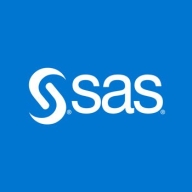

Oracle Data Integrator and SAS Data Integration Server compete in the data integration market. Oracle has the advantage with cost-effectiveness and flexible deployment options, although SAS offers a more comprehensive feature set appealing to enterprises with complex data needs.
Features: Oracle Data Integrator provides high performance and diverse connectivity, suitable for large-scale workflows with a flexible architecture, while SAS offers advanced analytics integration, rich features, and powerful data transformation capabilities.
Ease of Deployment and Customer Service: Oracle offers straightforward deployment and satisfactory support adaptable to various environments, providing quicker setup with less complexity. SAS's deployment can be more demanding due to its extensive functionality, supported by robust documentation and reliable service.
Pricing and ROI: Oracle Data Integrator's competitive pricing model favors efficient deployment with solid ROI, appealing upfront with cost benefits. SAS Data Integration Server, with a higher initial setup cost, is perceived to deliver better long-term ROI due to extensive functionality and high scalability.

Oracle Data Integrator (ODI) is a data integration software solution that provides a unified infrastructure to streamline data and application integration projects. It uses a powerful design approach to data integration, which separates the declarative rules from the implementation details. The solution is based on a unique ELT (Extract Load Transform) architecture, eliminating the need for a standalone ETL server and proprietary engine.
Oracle Data Integrator Features
ODI has many valuable key features. Some of the most useful ones include:
Oracle Data Integrator Benefits
There are many benefits to implementing ODI. Some of the biggest advantages the solution offers include:
Reviews from Real Users
Below are some reviews and helpful feedback written by PeerSpot users currently using the Oracle Data Integrator (ODI) solution.
Brian D., Business Process and Strategy Specialist Advisor at NTTData, says, “The Knowledge Module (KM) is my favorite feature of ODI. This is where I learned how to use variables to make jobs dynamic. I took that knowledge and created a KM that would go into iTunes and pull the sales of eBooks. Making something that is reusable, like a KM, is important to not only reduce build time but also maintenance in the future.”
Ashok S., Applications Support Manager at a marketing services firm, mentions, "The most valuable features of ODI are the ease of development, you can have a template, and you can onboard transfer very quickly. There's a lot of knowledge modules available that we can use. If you want to connect, for example, a Sibyl, SQL, Oracle, or different products, we don't have to develop them from scratch. They are available, but if it's not, we can go into the marketplace and see if there's a connector there. Having the connector available reduces the amount of hard work needed. We only have to put the inputs and outputs. In some of the products, we use there is already integration available for ODI, which is helpful."
We monitor all Data Integration reviews to prevent fraudulent reviews and keep review quality high. We do not post reviews by company employees or direct competitors. We validate each review for authenticity via cross-reference with LinkedIn, and personal follow-up with the reviewer when necessary.